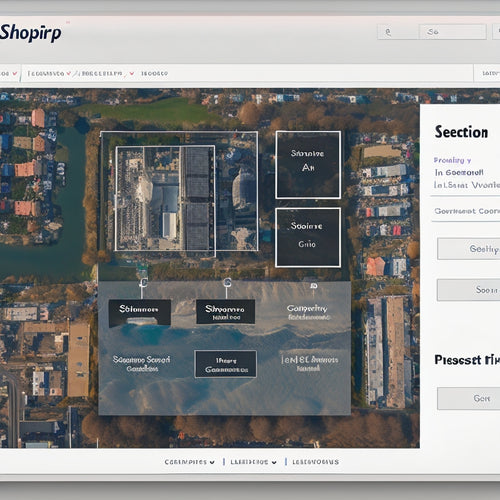
Elevate Your Online Business With Credit Processing
Share
Enhancing your online business with credit processing demands a thorough comprehension of the intricate ecosystem involved. It commences with a secure payment gateway, where customer data is encrypted for transmission to the payment processor, and ultimately, the issuing bank for authorization. Effective management of credit card processing fees, optimization of transactions, and selecting the right processor are vital to reduce costs and improve customer experience. By maneuvering risks and security measures, online businesses can guarantee a smooth and effective payment process. To unleash the complete potential of credit processing and propel business growth, understanding the complexities of this vital component is imperative.
Key Takeaways
• Establish a seamless online payment system to enhance customer experience and increase conversions.
• Optimize credit card processing fees by negotiating with payment processors and understanding fee structures.
• Ensure PCI compliance to protect customer data, minimize fraud risk, and avoid additional fees.
• Choose a reliable payment processor with strong security features, competitive pricing, and supported payment methods.
• Implement fraud prevention measures and regular security audits to mitigate risks associated with credit card processing.
Understanding Credit Card Processing
When it comes to eCommerce credit card processing, a complex network of entities and technologies is involved, including acquiring banks, issuing banks, merchant accounts, payment gateways, and payment processors, all working together to facilitate a seamless transaction.
The customer initiates the transaction by providing their card details, which are then encrypted using payment encryption to guarantee secure transmission.
The payment data is sent to the payment processor, who contacts the credit card network and issuing bank for authorization. Upon approval, the funds are transferred from the customer's bank to the merchant's account.
Throughout this process, issuing banks play an essential role in verifying the customer's account details and ensuring the transaction is legitimate. By understanding this process, online businesses can better navigate the complexities of credit card processing and prioritize security and efficiency.
Managing Credit Card Processing Fees
Credit card processing fees, a significant component of eCommerce operational costs, encompass a range of charges that online businesses must navigate to maintain profitability.
To reduce costs and optimize expenses, understanding the various fee structures involved is crucial. Here are some key considerations:
-
Transaction fees: Negotiate with your payment processor to secure the lowest rates for your business volume.
-
Interchange fees: Optimize your transactions to minimize these charges from credit card networks.
-
Monthly fees: Choose a payment processor with competitive monthly fees or consider wholesale pricing models.
- PCI compliance fees: Make sure you're meeting the necessary security standards to avoid additional fees.
Getting Started With Ecommerce
Establishing a seamless online payment system is a critical step in launching a successful eCommerce venture, as it directly impacts the customer experience and ultimately, revenue growth.
When getting started with eCommerce, setting up a secure and efficient payment process is paramount. Best practices dictate that you should carefully consider your payment processor, taking into account factors such as pricing, supported payment methods, and integration with your website.
Confirm that your payment system is PCI compliant, protecting sensitive customer data and minimizing the risk of fraud. Integrate your payment gateway with your website, and conduct test transactions to verify functionality.
Choosing the Right Processor
Choosing a trustworthy payment processor is a crucial decision in eCommerce, as it directly impacts transaction security, processing fees, and ultimately, customer trust and loyalty. To make an informed decision, it's vital to research and evaluate various payment processors.
Develop a comparison chart to visualize the features, fees, and services provided by each processor. Review processor evaluations from reputable sources to gain insight into their dependability, customer support, and security measures.
- Take into account the processor's compatibility with your eCommerce platform
- Assess the fees linked to each transaction, including interchange fees and verification fees
- Seek out processors with strong security features, such as encryption and tokenization
- Verify certifications, like PCI-DSS compliance, to guarantee data security
Navigating Risks and Security
In addition to choosing a reliable payment processor, eCommerce businesses must also contend with the inherent risks and security concerns associated with credit card processing, including fraud, data breaches, and higher fees.
To mitigate these risks, businesses must implement robust fraud prevention measures, such as transaction monitoring and card verification values. Implementing security measures like encryption and tokenization can also help protect sensitive customer data.
Effective risk management strategies, including regular security audits and compliance with industry standards like PCI-DSS, are also essential.
Frequently Asked Questions
Can I Use a Personal Credit Card for Business Transactions?
While technically possible, using a personal credit card for business transactions is not recommended, as it blurs financial boundaries and increases risk. Separate business accounts offer better financial management, liability protection, and tax benefits.
How Do I Handle International Credit Card Transactions?
When managing international credit card transactions, imagine a secure bridge connecting global customers to your business. Utilize online payment processors that offer robust currency conversion and fraud protection, ensuring seamless cross-border sales and safeguarding your customers' sensitive information.
Are Credit Card Processing Fees Negotiable?
Yes, credit card processing fees are negotiable, especially for high-volume merchants. Employ fee negotiation tactics, such as bundling services, to reduce costs. Leverage credit card benefits, like rewards and cashback, to offset fees and enhance customer loyalty.
Can I Process Credit Cards Without a Merchant Account?
As the digital landscape unfolds, entrepreneurs often wonder: can I process credit cards without a merchant account? The answer lies in virtual terminals and third-party processors, offering secure, merchant-account-free solutions for seamless online transactions.
What Happens When a Customer Disputes a Credit Card Charge?
When a customer disputes a credit card charge, the chargeback process is initiated, and the merchant's protection relies on robust fraud prevention measures and efficient dispute resolution strategies to mitigate losses and maintain customer trust.
Related Posts
-

What Is Social Proof Shopify
This article examines the concept of social proof on Shopify, a popular e-commerce platform. The objective of this a...
-

Adding Sitemap to Your Shopify Store: A Complete Guide
This article aims to provide a comprehensive guide on the process of adding a sitemap to a Shopify store. A sitemap ...
-

Can You Link a Blog to Shopify
This article explores the benefits of linking a blog to Shopify for SEO purposes. It provides tips for optimizing SE...


